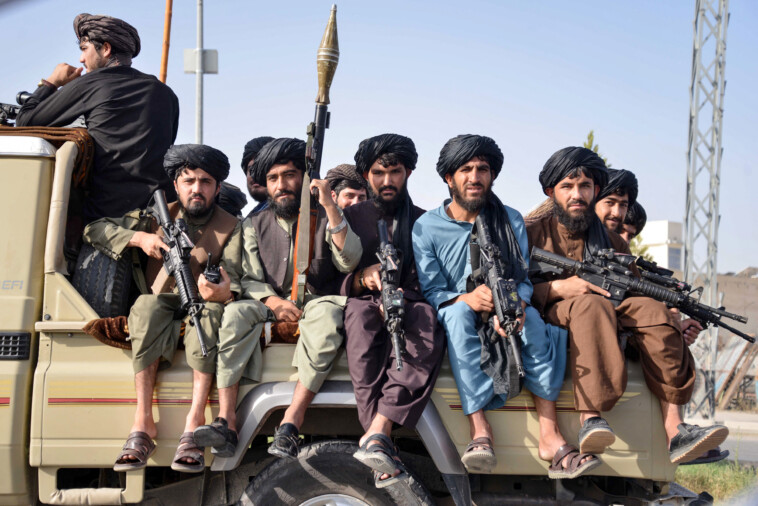A travel influencer has received backlash for “fangirling” over Taliban fighters in photo ops on a trip to Afghanistan that overlapped with a woman being sentenced to death by stoning — and as millions of women and girls in the country are denied basic rights.
Somali American influencer Marian Abdi, who goes by Geenyada Madow online, was slammed online for gushing on Instagram about how visiting the war-torn nation was a “dream come true,” according to Afghan newspaper 8AM Media.
“This country is recovering from 40 years of war and turmoil. Over the next few days, I will share my experiences here in Afghanistan, including insights into the people, the food, and the overall culture,” she wrote in her post on Aug. 13 along with a photo of herself in front of an “I heart Afghanistan” sign.
She also received pushback on various photos and videos of her in Afghan cities, which capture the harsh reality of Afghanistan under the Taliban, as only men can be seen touring alongside the solo female traveler.
The criticisms came to a boiling point after Abdi shared an image of herself to X posing and smiling next to AK-47-toting Taliban members, prompting Afghan women and activists to question whether Abdi asked the Taliban why they have stoned women and forbidden them from receiving an education.
“ln a time when Afghan girls and women are deprived of their most basic rights, it is deeply troubling and unacceptable to see someone like Geenyada Madow, who has gone to Afghanistan and lobbies for the Taliban,” said Niloofar Naeimi, a human rights activist on Afghan women’s issues.
“This action disregards the suffering and pain of millions of Afghan women who face oppression and persecution under the Taliban’s rule,” she added.
Another activist, Nilofar Ayoubi, former leader of the Women Movement, slammed the influencer’s tone-deaf actions, writing in the 8AM article, “An Afghan woman has been sentenced to be executed by stoning death while Miss Madow fangirling on the Taliban.”
“While her visit to Afghanistan and her content creation about our country and culture are highly appreciated, what is not welcomed and, in fact, appalling, is the picture she’s painting of the Taliban!” she continued.
In one of her videos shared on YouTube, Abdi explained her interaction with the Taliban fighters, whom she said she was “super nervous” to meet. She also noted she was not allowed to record their interaction.
“I was super nervous, I am confused … the fact that they would even allow me to talk to them. I couldn’t record our conversation because they wouldn’t allow me and my battery died. They asked me where I am from as they can see I’m a foreigner,” she said in her video.
“I said I’m Somali; they’re like okay are you from the West. I said yes, I’m from America they’re like okay welcome,” she said.
The influencer also claimed that she asked the Taliban why Afghan girls and women were not allowed to continue their education beyond sixth grade and was met with different “reactions of their faces” and responses.
“The only answer that made sense that came out of one of their mouths was we’re a new country … new government and things will change … everything takes time. I was like that’s it, they said yeah,” she said in the video.
Abdi also defended her photo with the Taliban on X, writing, “I ended up asking for a photo and I did take a photo with them and I posted it on Twitter and it’s just outrage — like people are going crazy, [saying] ‘Shame on you, you’re against women’s rights, women’s education, women’s jobs.’”
“That’s not the case — this photo was just to simply say this is my experience, this is what I saw, this is how they treated me,” she said.
The influencer continued, “I am for all women’s rights and I would love to see one day women getting educations and working and everything and I do understand my privileges, you know, but please don’t take everything out of context.”
“I’m posting so many beautiful things about Afghanistan, the culture, the people — don’t judge me for one photo,” she concluded.
The Taliban regained control of the Middle Eastern country in 2021, weeks before the US was set to completely remove troops following a costly, two-decade war, returning the country to a regime that heavily restricts women’s role in society.
Since the group regained power, women have been restricted from visiting public places and denied education, jobs and other basic rights.
The Taliban, despite initial promises of a more moderate rule, also stone women to death in public as punishment for adultery.







